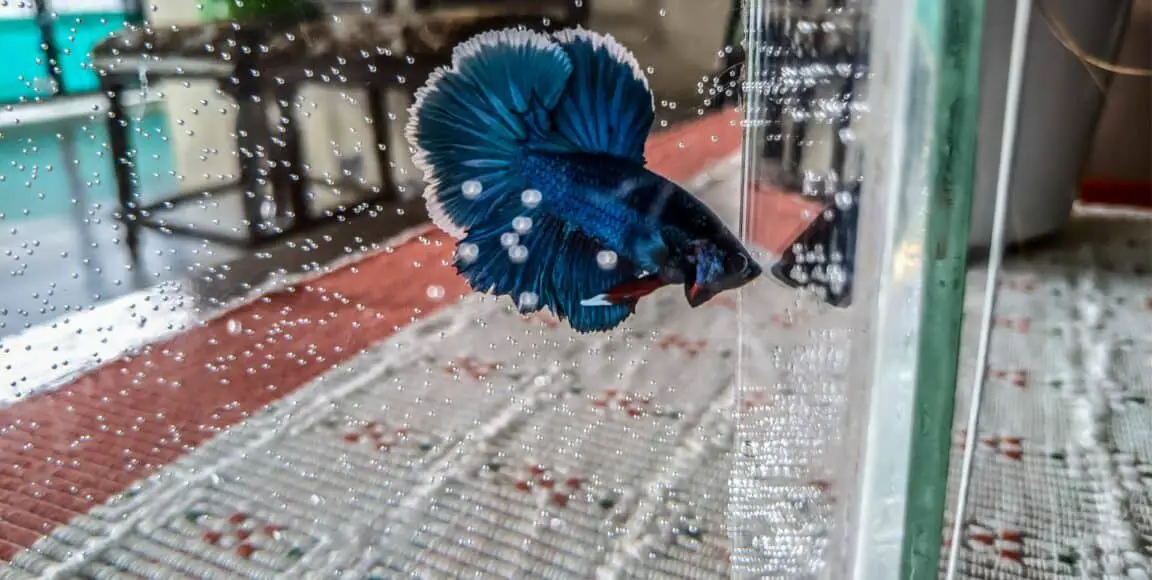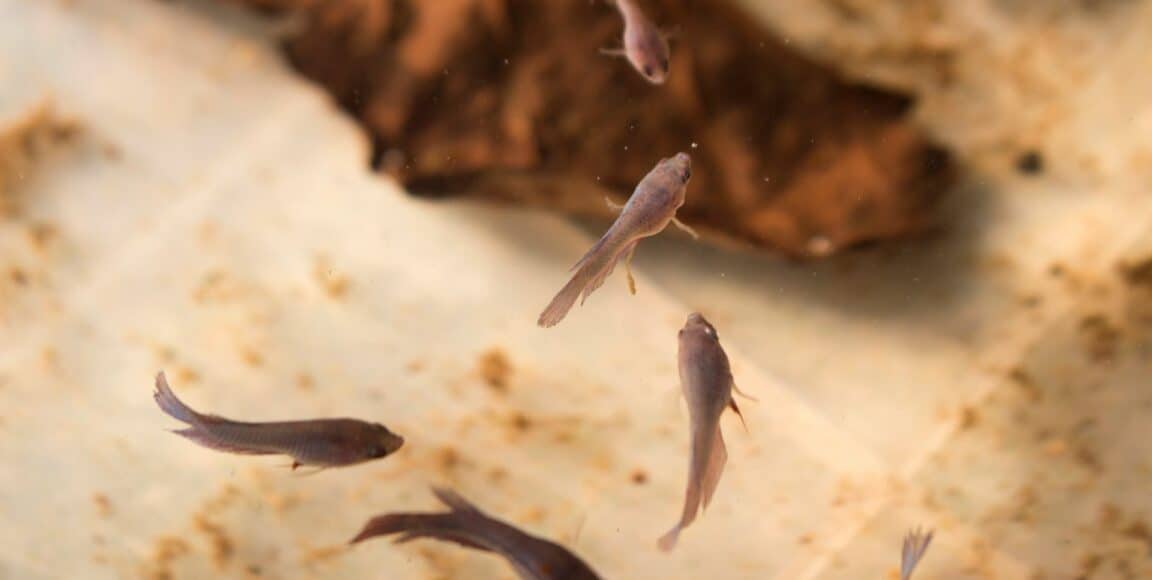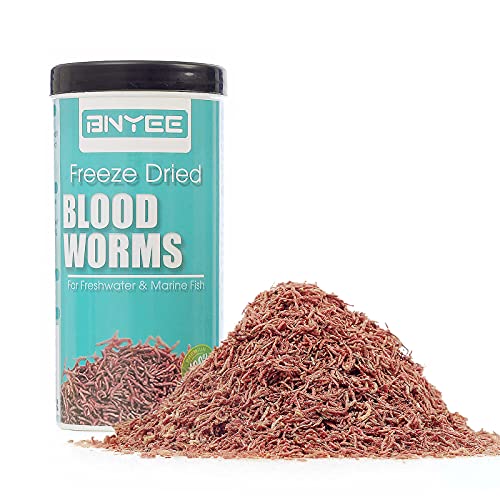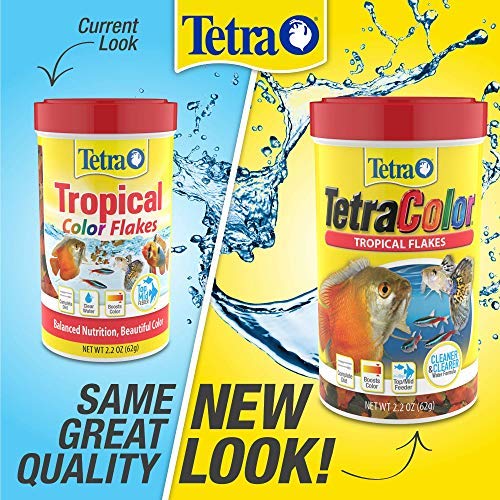Last Updated on January 20, 2023
Have you ever seen your betta fish spitting out food? Does it leave you wondering why this is happening?
Betta fish are one of the most popular types of pets. They’re easy to care for and come in various colors.
However, as a betta owner, you might have experienced this worrying behavior from your fish.
Although this could be concerning at first, it turns out that betta fish spitting out food is pretty common, and there are many reasons for it.
That’s what we’re going to talk about.
By the end of this blog post, you’ll better understand this behavior and what you can do to prevent it.
Table of Contents
Why does my betta fish spit out food?

It’s important to determine the real issue as to why your betta fish isn’t eating its food. Here are the most common ones:
Your betta may have a digestive issue
If your betta is spitting his food, it could be because he has a digestive issue like constipation.
A bloated betta’s stomach and lack of regular defecation indicate that your fish may suffer from this condition.
The cause of this problem can most often be traced to overfeeding.
Giving too much can be counter-productive, no matter how high-quality the food is.
To ensure that your fish stays healthy and well-nourished, it is best to give them two to four pellets or three to four bloodworms per day, no more than twice a day.
By doing this, you will help your betta avoid constipation and keep his digestive system running smoothly.
Constipation symptoms
Here are some of the common signs that indicate your betta may have constipation:
- Not eating or spitting out betta food
- Lethargy and lack of activity
- Bloated stomach
- Difficulty swimming
- No feces in the tank
If you notice any of these signs, it is important to take action immediately and ensure your betta gets back on track.
How to relieve your betta fish of constipation
Fortunately, there are a few steps you can take to help cure constipation in your betta fish
The first step is to fast your betta for 2-3 days.
This will give their digestive system time to reset and may help alleviate constipation.
If this doesn’t work, try feeding them a boiled pea or daphnia, both high in fiber and can help move food through their digestive system.
Epsom salt is commonly used to treat constipation in fish and people alike, as it works as a gentle muscle relaxant.
Just be sure to research how to boil peas or use Epsom salt properly, as they can be harmful if done incorrectly.
Maybe they are just juvenile
If you recently got a betta fish from the store, chances are it’s still relatively young.

Many pet stores feed young betta fish with live food, so starting off with pellets or flakes at home can be strange.
To make sure your betta can transition smoothly and get used to their new diet, try introducing them to different types of food slowly.
Sometimes, your fish might be spitting food because the pieces are too big to swallow.
To help with this problem, mix up different types of food or start by feeding them only small amounts at first.
This way, you can ensure that they eat properly and they can get enough nutrition.
Your betta is just being fussy
Siamese fighting fish are picky eaters. That’s one thing you should always keep in mind. If your betta is being fussy and spitting food, don’t force them to eat it.
Allow them some space and time to get hungrier so they will inevitably start nibbling at the food you offer.
But keep an eye on them and remove any uneaten food after 10 minutes.
Otherwise, the leftovers will decay in your tank, leading to a rise in ammonia levels.
If your betta still doesn’t eat the food, you might need to change its food. Feel free to experiment with different types of food and see what they like best.
Your betta fish is sick
If you notice any changes in your betta’s behavior, such as a lack of energy and difficulty swimming, it could indicate that they are sick.
This is something to take seriously and address immediately. Based on my experience, betta fish become susceptible and can quickly die from disease and illness if not treated.
In addition, observing the symptoms and taking preventive measures can help prevent further complications.
Parasites are an unfortunate possibility, which can cause your betta to stop eating even if they’re hungry – so it’s important to be mindful of this.
If parasite infestations are suspected, the best course of action is to move your betta into a quarantine tank.
This will prevent any potential contamination and keep away from other fish.
What should I feed my betta fish?
To prevent your betta from spitting any food, here are some suggested meals you can give them.
This is to offer them a variety of foods and provide them with a healthy diet.
Pellets
Image of Tetra 77019 Betta Floating Mini Pellets for Bettas. Click on the image for more information.
Pellets are one of the most common and go-to foods for betta fish. Easily purchased in stores, there are plenty of brands to choose from that you can add to your betta’s menu.
Some types of pellets expand when soaked in water, which could cause digestive issues and bloating.
If this is the kind of brand you have, try soaking them in tank water before being fed to your betta to avoid indigestion.
Freeze-Dried Foods
Image of Freeze Dried Bloodworms Fish Food. Click on the image for more information.
One of the benefits of giving freeze-dried foods to your betta fish is that they are inexpensive and are free of bacteria and parasites.
So it’s perfect for those who want to save money but still provide their bettas with nutritious meals.
Same as the pellets, it is best to soak freeze-dried food in water first to increase its moisture and avoid digestion problems.
Some good examples of freeze-dried foods for betta fish are brine shrimps and bloodworms.
Flakes
Image of TetraColor Tropical Flakes with Natural Color Enhancer. Click on the image for more information.
Flakes are an excellent choice when it comes to feeding your betta, as they provide all the vital nutrients needed for a healthy diet.
Betta flakes can also be used as their main source of nutrition but don’t forget to clean up any excess food from the tank afterward.
This is to keep water conditions optimal and prevent too much waste from building.
Live and Frozen Food
Image of Omega One Freeze Dried Blood Worms. Click on the image for more information.
Frozen or live food will be a good alternative if your betta fish starts spitting dried foods.
Live and frozen food is a great way to provide your betta with essential vitamins and minerals they may be missing out on.
Not only are these foods packed full of nutrition, but they also make for an exciting treat that your betta will love.
This type of food can help keep them healthy and boost their immune system.
Brine shrimp, mosquito larvae, and bloodworms are all excellent options that can be found in fish stores or online.
If you purchase these food types in bulk, store them properly for long-term use.
And I hope you don’t confuse frozen foods with freeze-dried foods (because I did at first, actually).
Frozen foods vs freeze-dried foods
Frozen and freeze-dried foods are both types of food you can give to your betta fish, but they’re very different.
Frozen food is like the type of food you buy at the supermarket – things like brine shrimp or bloodworms that have been frozen, so they stay fresh for longer.
Freeze-dried food is a bit different – it’s food that has been dried and preserved, so it lasts longer.
It looks like tiny little pellets or pieces of food, but they rehydrate when you put them in water.
Related: Best Food for Betta Fish to Keep it Full and Well
FAQs
How often should I feed my betta?
Your betta fish should be fed 2-3 times daily with small portions, no more than what they can consume in 2 minutes.
Also, varying the diet by offering different types of foods such as freeze-dried shrimp, daphnia, bloodworms, and other frozen or live foods is important for their health.
Related: How Much to Feed a Betta Fish
How do I know if I’m overfeeding my betta?
It can be tricky to know when you’re overfeeding your betta. But some common signs of overfeeding include bloating, weight gain, and cloudy eyes. Some other clear indications include a build-up of waste in the tank and uneaten food floating in the water.
Why isn’t my betta fish eating his pellets?
Some reasons your betta fish may not be eating their pellets. It could be because they’re not hungry or a sign that the food isn’t of good quality.
Also, if you’ve recently changed their diet or added a new type of food, they may take some time to get used to it.
Final thoughts
I hope this article helped you understand the eating habits of your betta fish.
As an owner, you may be worried when your betta fish spits out its food, but typically this behavior is nothing serious and can be attributed to their personality or the type of food.
Always provide a high-quality diet that includes plenty of protein and small pieces that are easy enough to chew on.
Giving them vegetables as a treat is also a great idea, but don’t forget to feed only the right potion.
The most important thing is to avoid overfeeding, as it can quickly lead to health problems for your betta.
And if you notice that your betta is starting to lose its color, be lethargic or show any other signs of distress, take a closer look and seek help from a vet if necessary.
Happy betta keeping!




